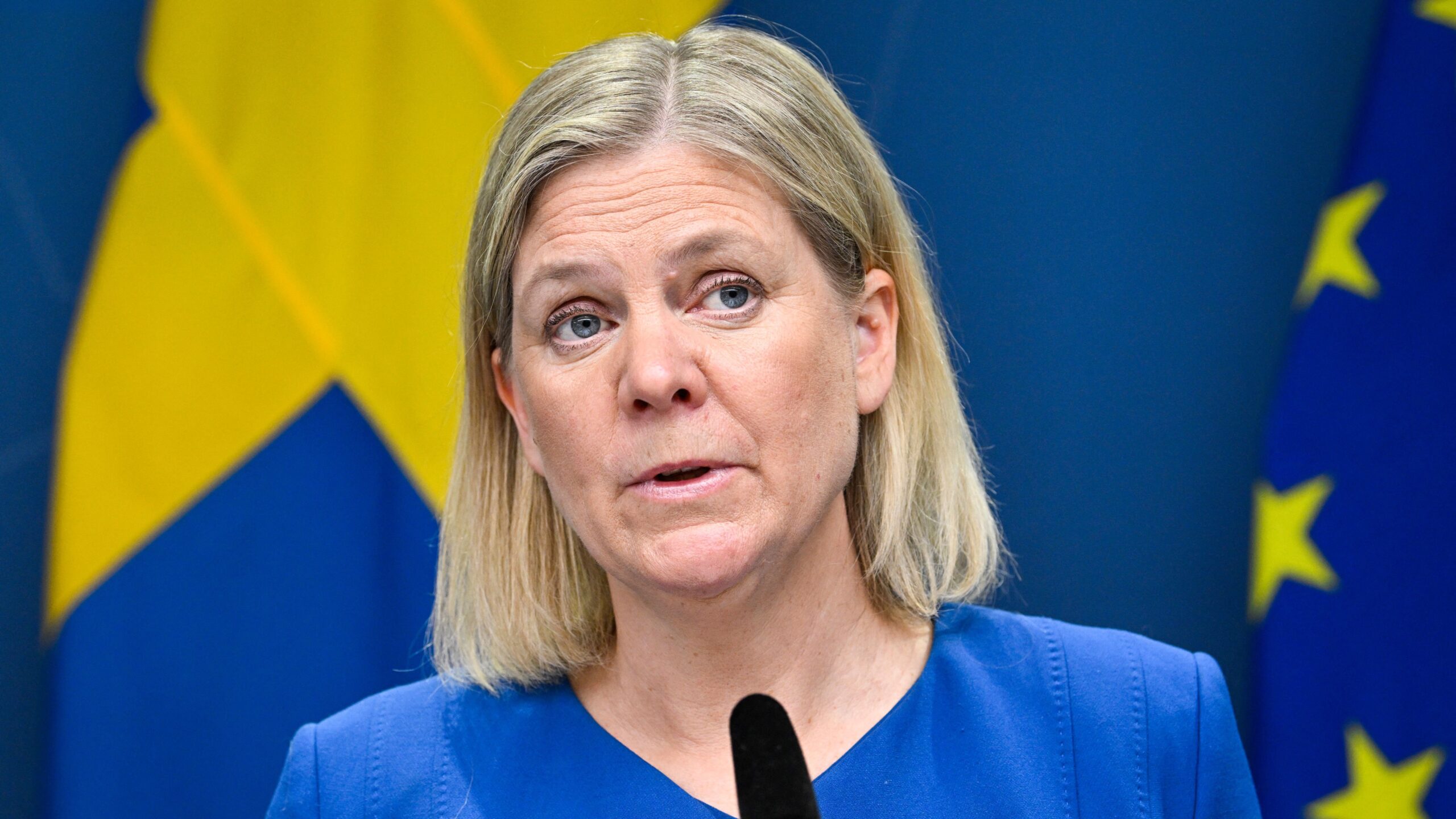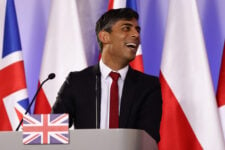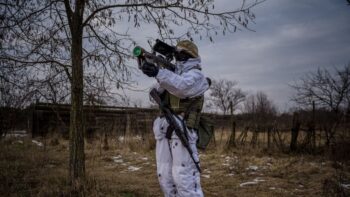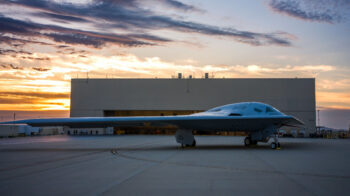
Sweden’s Prime Minister Magdalena Andersson gives a news conference in Stockholm, Sweden, on May 16, 2022. (HENRIK MONTGOMERY/TT News Agency/AFP via Getty Images)
WASHINGTON: Sweden’s ruling party today announced plans to apply for NATO membership, a dramatic turnaround from decades of Swedish policy — and a change tied directly into Russia’s decision to invade Ukraine.
The office of Prime Minister Magdalena Andersson released a statement Monday morning titled “The Government has decided today that Sweden will apply for NATO membership.” The statement, less than 100 words, notes that “the Government’s assessment is that NATO membership is the best way to protect Sweden’s security in light of the fundamentally changed security environment following Russia’s invasion of Ukraine.”
Stockholm’s decision follows last week’s move by neighbor Finland to apply to join the alliance. The two nations have been linked for decades by their agreement to remain politically balanced between NATO and Russia, although both have been aligned closely with the Western alliance in regards to military affairs.
Once Sweden formally applies for membership, every member state of NATO has to ratify the application. That leaves a potential months-long process ahead, during which Russia could move to intervene in some way.
RELATED: Norway’s chief of defense: Finland, Sweden in NATO ‘opens up a lot of possibilities’
Before Sweden’s decision was made public, Russian President Vladimir Putin said in a translated speech that “Russia has no problem with those states. So there is no direct threat from expansion to those countries. But deploying military infrastructure will provoke a response.”
As a result of this gap period, Swedish officials have spent the last month shoring up political and security support. For instance, on May 5, Sweden’s ambassador to the US said that “we have asked what other NATO members could do to help us out in this time to raise the threshold” for a Russian attack. (Of note, Swedish defense minister Peter Hultqvist will be meeting with US Secretary of Defense Lloyd Austin at the Pentagon this week.)
On May 11, British Prime Minister Boris Johnson visited Sweden and signed a new security agreement. He was quoted by Reuters as saying, “What it says is that in the event of a disaster, or in the event of an attack on either of us, then we will come to each other’s assistance, including with military assistance.”
Shortly after Sweden’s announcement, the governments of Denmark, Iceland and Norway issued a joint statement calling for a “swift” ascension process — and pledging security assistance for both Sweden and Finland in the coming months.
“Finland and Sweden’s security is a matter of common concern to us all. Should Finland or Sweden be victim of aggression on their territory before obtaining NATO membership, we will assist Finland and Sweden by all means necessary,” the statement reads. “We immediately initiate preparations in order to effectuate these security assurances. We will also further develop our defence cooperation with Finland and Sweden.”
The idea that Sweden would join NATO has long seemed a pipe dream for the pro-alliance crowd, and until Russia’s invasion, remained out of grasp. An early 2022 poll found 42% in favor and 37% against — a decent starting point, but still not enough to cause politicians to begin a serious ascension effort. By April 20, roughly two months after Russia’s invasion began, support for NATO membership among Swedes was polled at 57% with opposition down to 21%.
RELATED: Finland and Sweden eye Israeli defense systems: Sources
Leaders in both Sweden and Finland will now be counting the votes of the various NATO nations. The first to raise concerns is Turkey, where President Tayyip Erdogan signaled he might throw up opposition due to the presence of Kurdistan Workers Party (PKK) members in the two Scandinavian countries. However, a spokesman over the weekend walked back the statement, signaling that Erdogan was not outright pledging to block NATO membership.
While other countries — keep an eye on Hungary, where Prime Minister Viktor Orban is seen as the closest NATO leader to Putin — may also try to leverage the Scandinavian push for their own political objectives, the assumption among the NATO community is that ultimately no one will prevent serious opposition and that both nations will be admitted fairly quickly.
Sullivan says Ukraine supplemental should cover all of 2024, long-range ATACMS now in Ukraine
“We now have a significant number of ATACMS coming off their production line and entering US stocks,” Jake Sullivan said today. “And as a result, we can move forward with providing the ATACMS while also sustaining the readiness of the US armed forces.”


























